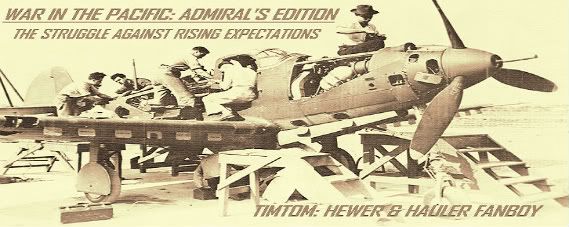Q-Ball
Posts: 7336
Joined: 6/25/2002
From: Chicago, Illinois
Status: offline

|
quote:
ORIGINAL: wwengr
Japanese subs attacked warships because they perceived them as the real threat and did not appreciate the role of freighters and tankers. The exact opposite drove Allied sub doctrine.
Interesting comments, though I beleive this particular statement is a myth. It is not that the Japanese didn't understand the value of merchant fleets; on the contrary, as an Island Nation, they completely understood that value. The reason for the IJN sub doctrine is that commiting to a strategy of attrition, like sinking merchants, would be committing to what the IJN knew to be a losing strategy. This drove many IJN decisions that in hindsight look bad precisely because they were stuck fighting a battle of attrition. But, IJN planners absolutely knew that fighting an attrition war against the United States was suicide.
IJN planners knew that the United States had two coasts, not just one, and was much more self-sufficient than Japan in raw materials. Attacking the merchant fleet would have had little effect, per IJN planning. Thus, the proper doctrine is to attack warships, to attrite the US Navy on it's voyage Westward, and utlimately defeat it in weakened state in one big battle. Or so the theory.
That doesn't excuse the IJN's neglect of ASW, which was clearly a negligent oversight.
You could also say this lack of long-range planning effected Naval Pilot training. In a war of attrition, a gross oversight, but the IJN knew it could not win a protracted war.
USN Sub doctrine, and Allied sub doctrine in general, was more shaped by the experience of Britain in World War I, were commerce raiding nearly brought UK to her knees. Even so, USN were late converts to commerce raiding in general. They benefited from UK concentration on ASW, which is understandable given their experience in WW I.
_____________________________
|
 Printable Version
Printable Version






















 New Messages
New Messages No New Messages
No New Messages Hot Topic w/ New Messages
Hot Topic w/ New Messages Hot Topic w/o New Messages
Hot Topic w/o New Messages Locked w/ New Messages
Locked w/ New Messages Locked w/o New Messages
Locked w/o New Messages Post New Thread
Post New Thread